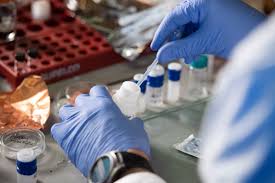New government partner joins UMD’s Center for Research in Extreme Batteries
The University of Maryland’s (UMD) Center for Research in Extreme Batteries (CREB) Consortium welcomes its newest member, the U.S. Department of Commerce’s National Institute of Standards and Technology (NIST). CREB was launched in 2014 out of a partnership between the Army Research Laboratory (ARL), NIST, and then UMD associate professor Chunsheng Wang, now Professor and R.F. and F.R. Wright Distinguished Chair in the Department of Chemical and Biomolecular Engineering. The CREB consortium was established in 2017 by an agreement between UMD and ARL, as a separate entity affiliated with CREB in order to provide a mechanism for extended collaborations. The consortium is now joined by NIST. The CREB consortium aims to foster and accelerate collaborative research on battery materials and technologies. The center is focused on batteries for extreme performance, environments and applications. Participation in the center is open to anyone including national and defense labs, universities, large industry and fledgling start-up companies. Current partners include ARL, the Maryland Energy Innovation Institute (MEI2), Argonne National Laboratory, New York Battery and Energy Storage Technology Consortium and Stony Brook University. Wang notes, “NIST’s membership in the CREB consortium will further advance and accelerate the infusion of new characterization capabilities in support of extreme battery research.” “We are very proud to join an organization dedicated to such an important area of technology,” said NIST Associate Director for Laboratory Programs James K. Olthoff. “Our membership is already opening up new collaboration and tech transfer opportunities with industry and academia in support of NIST’s mission to promote U.S. innovation and industrial competitiveness.” Consortium membership allows for the open exchange of researchers and better facilities for joint research projects. The Consortium also provides educational programs to foster scientific interchanges and assist in the transfer of technology into commercial reality. NIST’s partnership in the consortium will accelerate the training of the next generation of engineers and scientists while developing advanced materials and battery technology to assist the automotive, biomedical and defense industries.
Related Articles: November 6, 2020 Prev Next |


